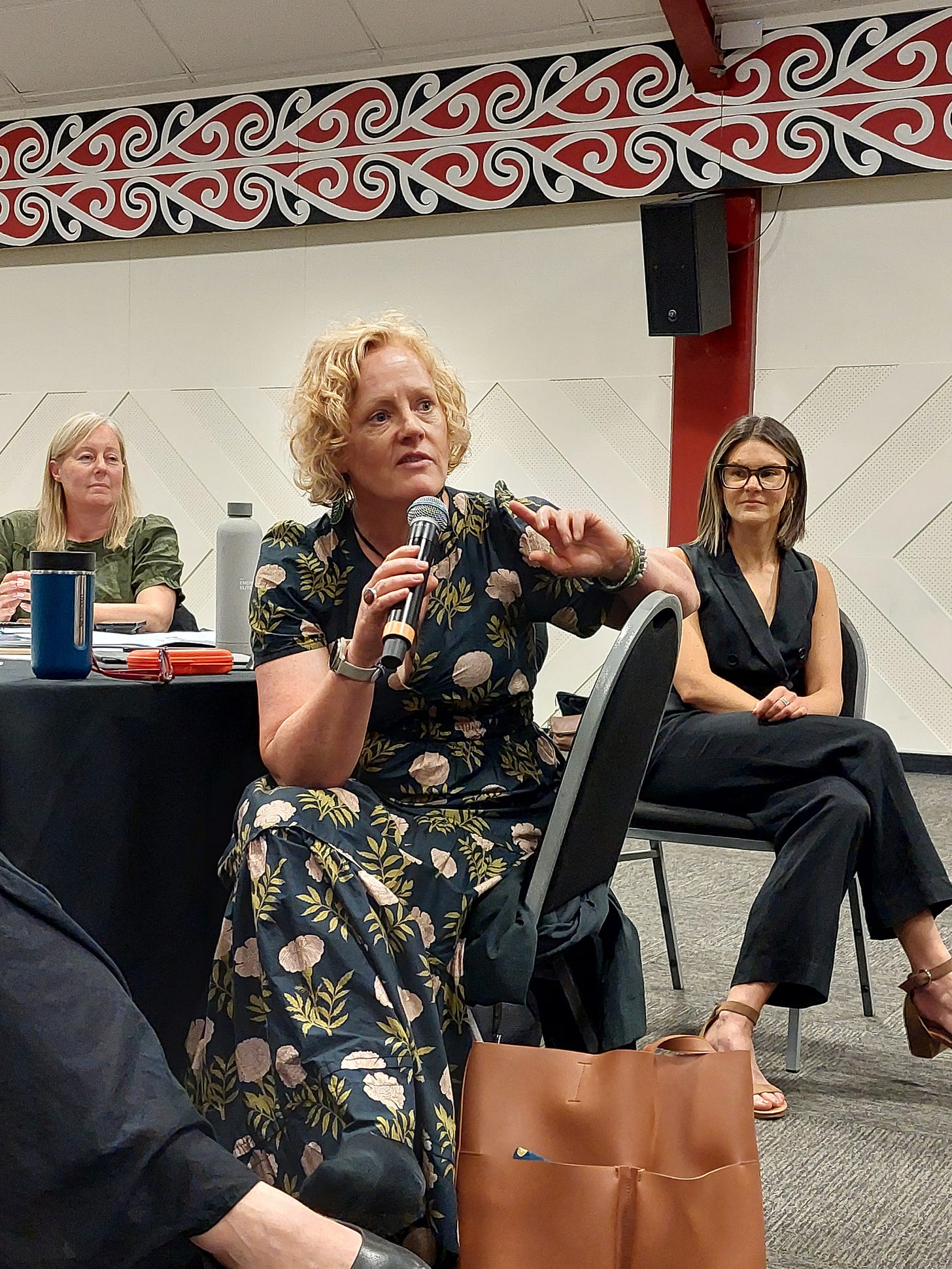Taking Rural Health to Parliament
Why I'm Packing a List of 40+ Professions Many Politicians Have Never Heard Of
This Wednesday, I'll be walking through the doors of the Beehive representing the Scientific, Technical and Allied Health chapter of Hauora Taiwhenua Rural Health Network at Rural Fest. I'll be carrying a detailed breakdown of 40+ health professions that many MPs (and frankly, some of our health system leaders) wouldn’t know were part of who we mean when we say ‘Allied Health’.
Because here's the thing that I keep coming back to: how can we expect politicians to make good decisions about rural health when they don't even know who makes up our health workforce?
The Invisible 30%
When politicians talk about "health workforce shortages," they're usually thinking about two groups: doctors and nurses. That makes sense. These are the professions they encounter in hospitals, the ones that feature in medical dramas, the ones with the strongest unions and loudest voices.
But here's what they're missing: Allied Health, Scientific and Technical (AHST) professionals make up 30% of our health workforce. That's as many professionals as all the doctors combined. Yet when did you last hear a politician mention the critical shortage of physiotherapists in rural areas? Or the fact that many rural communities have no podiatrist, speech-language therapist, or oral health therapist?
The two-page handout Dr Sarah Walker and I've prepared for parliamentarians isn't just a list, it's an education. It breaks down the 40+ professions into clear categories:
Therapy Professionals who keep people moving, communicating, and thriving in their communities
Technical Specialists who run the diagnostic tests that inform every medical decision
Scientific & Specialist Care providers who prevent disease and manage complex conditions
Each profession has specialised expertise. Each one could be the difference between a rural family staying in their community or having to relocate to access care.
The Equity Gap That's Hiding in Plain Sight
This connects directly to the work I've been developing on the Rural Health Equity Framework™. One of the core systemic biases I've identified is what I call "professional hierarchy dismissiveness"; the tendency to treat Allied Health professionals as somehow "less than" doctors and nurses.
This bias shows up everywhere:
Medical and nursing students get preferential rural entry pathways and funded rural placements
International campaigns to recruit nurses and doctors from overseas, but no dedicated funding for rural AHST workforce development
Health Workforce New Zealand strategies focus on doctor numbers and nursing workforce age, while 40+ AHST professions barely get mentioned
But here's what really gets me: rural communities are crying out for exactly the kind of care these professionals provide.
Rural whānau need physiotherapists who can help manage chronic pain without having to travel three hours to the city. They need psychologists who understand the unique stressors of farming communities. They need dietitians who can work with local resources and cultural preferences. They need occupational therapists who can modify homes so elderly farmers can stay on their land safely.
Health Works Better Together – But First, We Need Recognition
My belief has always been that "health works better together." But you can't work together with professionals you don't know exist.
This isn't about creating competition between professions. It's about recognition. It's about ensuring that when politicians sit around tables making decisions about rural health funding, workforce planning, and service delivery, they're thinking about the full spectrum of expertise available.
Because here's the truth: every voice at the table makes everyone stronger.
When we only plan for doctors and nurses, we create systems that are incomplete. We miss opportunities for prevention, early intervention, and community-based care. We force rural people to travel when they could be supported locally. We waste the incredible expertise of professionals who are already in our communities but undervalued and underutilised.
What I'm Fighting For This Week
At RuralFest, I'll be advocating for practical, achievable changes, that have come from the front lines. These aren't radical ideas. They're about equity. They're about recognising that rural communities deserve access to the full spectrum of health expertise.
The Bigger Picture
This information I'm taking to Parliament is more than an educational tool. It's a challenge to how we think about health systems. It's asking politicians to expand their understanding of who contributes to community health and wellbeing.
Because when we recognise and value all health professions equally, when we ensure rural communities have access to the full spectrum of expertise, that's when health truly works better together.
The 40+ professions on my list aren't afterthoughts or "additional supports" – they're the backbone of community resilience. And it's time our political leaders knew their names.
(Photo credit: Hauora Taiwhenua Rural Health Network - Māori Rural Health Hui)
I'll be back next week with insights from the coalface of health policy advocacy. Because this conversation doesn't end when I leave the Beehive. It's just getting started.
Want to support this mahi? Share this post with someone who works in health policy or rural communities. Recognition starts with all of us knowing who's on our team.
Dr Jane George is developing the Rural Health Equity Framework™ and advocates for Allied Health, Scientific and Technical professions across Aotearoa. Her mission: Health Works Better Together.





